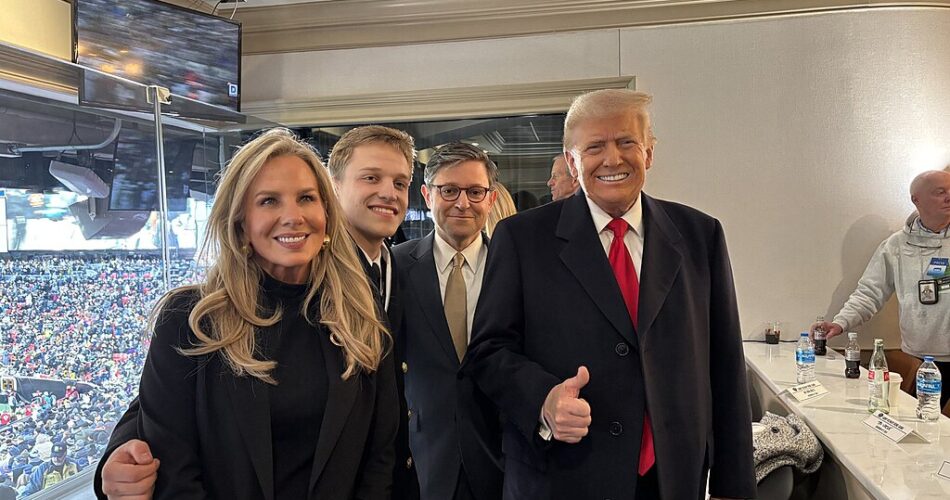He’s a hard-working leader.
President-elect Donald Trump has endorsed Rep. Mike Johnson, R-La., for Speaker of the House as the Republican Party prepares for a closely contested 119th Congress. Trump posted his support on Truth Social, urging Republican members of Congress not to miss this critical opportunity. He praised Johnson as a dedicated, hard-working leader with strong religious values who he believes will make the right decisions for the country. Trump’s full endorsement signals his confidence in Johnson’s ability to lead the House Republicans.
With a slim Republican majority in the House, the speaker election is expected to be highly competitive. Republicans won 220 seats in the 2024 election, but due to Rep. Matt Gaetz’s resignation, the actual majority will be 219. Despite Trump’s endorsement, some Republicans, such as Rep. Thomas Massie, R-Ky., have voiced opposition to Johnson, citing concerns over his previous votes and actions, including his support for certain policies that some see as aligning with Democrats.
Rep. Victoria Spartz, R-Ind., has also expressed reservations about Johnson’s leadership, particularly regarding his commitment to the agenda of President Trump. She criticized Johnson for being reluctant to push fiscal policies and said that if he doesn’t clarify how he plans to implement key conservative priorities, other Republicans might challenge him for the role. Her comments highlight ongoing skepticism within the party, despite Johnson being seen as a unifying figure after the chaotic process that followed Rep. Kevin McCarthy’s ousting as Speaker.
The process of electing a Speaker in the House of Representatives is complicated and requires a majority vote of 218 out of 435 members. With Johnson needing to secure these votes, any defections or “present” votes could complicate his path to the position. If no Speaker is elected by January 20, it could delay the certification of the 2024 election results, preventing President Trump from taking office as scheduled. In this case, the longest-serving member of the Senate, Sen. Chuck Grassley, R-Iowa, would temporarily assume the role of acting president.
Despite these challenges, Rep. Spartz remains optimistic that a Speaker will be chosen in time, asserting that the process will not extend past Inauguration Day. The election of a Speaker is crucial for the House to function, and while disagreements persist within the Republican Party, the party will likely work toward resolving the leadership issue before the start of the new Congress.
